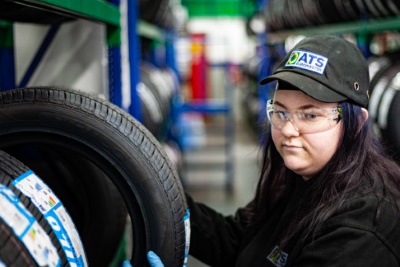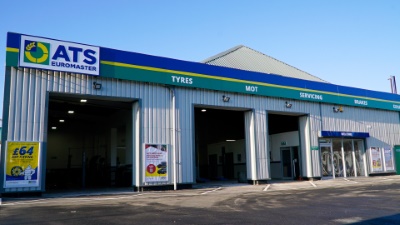ATS: reducing risk and costs with all-season tyres
 ATS Euromaster has offered its perspective on the benefits of all-season tyres with regard to both safety and cost management.
ATS Euromaster has offered its perspective on the benefits of all-season tyres with regard to both safety and cost management.
“At a time when costs are running high and everybody is doing what they can to keep them low, for fleets, the fitment of all-season tyres will prove vital in lowering costs as tyre prices are on the rise,” said Lois Harvey, category manager at ATS Euromaster.
“All-season tyres provide consistent traction in most weather conditions and eliminate the need for fleets to change over to winter tyres during the autumn and back to summer tyres in the spring.
“Another benefit of all season tyres is that they do not wear out faster than other tyres. Their intermediate rubber and long tread life means they adapt well to changing weather conditions and are less likely to experience wear and tear from the changing seasons, compared to specialised summer or winter tyres.”
With all-season tyres, fleets are able to save on additional tyre costs and tyre storage at a time when fleet tyre budgets are under pressure, contends Lois, as prices have risen considerably due to the rise in inflation.
“So fleets can achieve significant savings on tyres and fitment costs, but additionally, with these tyres, they can also reduce vehicle downtime, keeping fleets running in any weather,” she continued.
“Tyre technology has advanced considerably during the last two or three years, eliminating the fleet requirement for winter tyres in most cases within the UK. The advantage of all-season tyres for fleets is that they meet the UK’s changeable weather patterns, where it can be sunny one moment, followed by a rain deluge the next, or a flurry of snow followed by snowmelt. It offers drivers greater grip across a wider cross-section of weather conditions and temperatures.
 “These tyres support vehicle safety, longevity and consistent performance. In cold and wet conditions, all-season tyres offer superior grip and braking performance over summer tyres and are less of a compromise in the warmer dryer months than a full winter tyre, negating the need to switch from summer to winter tyres and vice versa when the time comes.
“These tyres support vehicle safety, longevity and consistent performance. In cold and wet conditions, all-season tyres offer superior grip and braking performance over summer tyres and are less of a compromise in the warmer dryer months than a full winter tyre, negating the need to switch from summer to winter tyres and vice versa when the time comes.
“Increasingly, all-season tyres are being fitted as original equipment and there continues to be a surge in demand as these vehicles start to require tyre replacements.
“As a final point, it is important to remember that fitting all-season tyres to fleet vehicles adds another layer of employer duty of care with a year-round product. It means fleet managers can be assured that their drivers are experiencing greater levels of vehicle safety whatever the UK’s changeable weather can serve up.”










